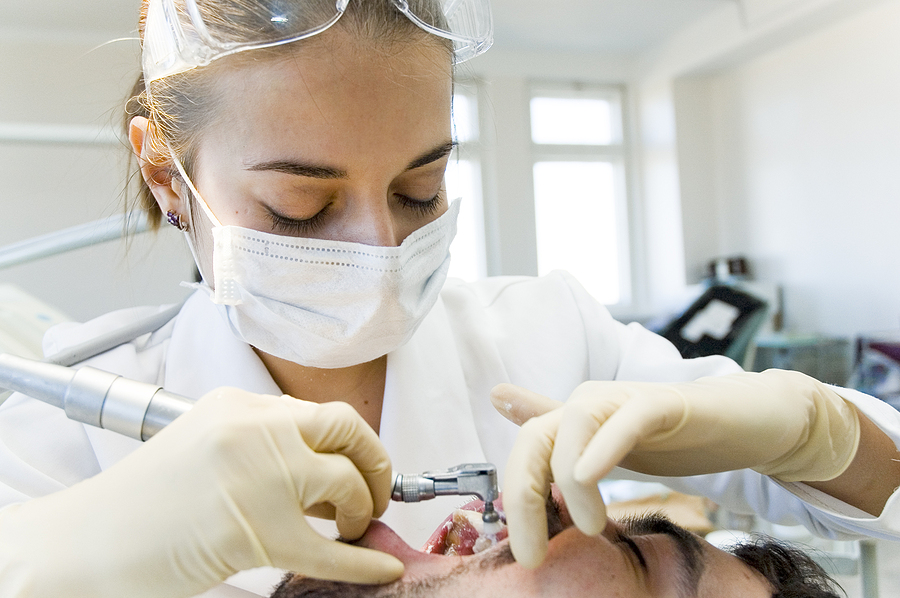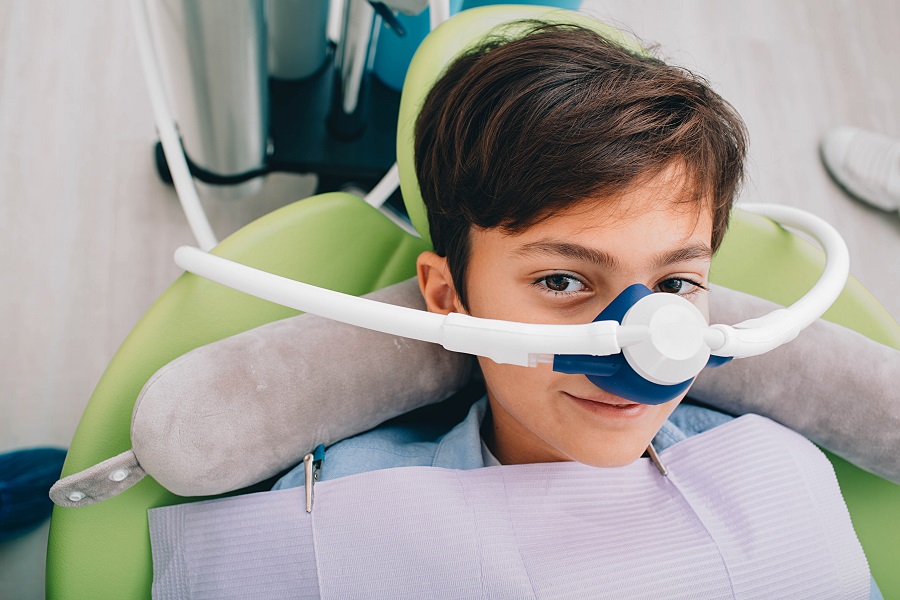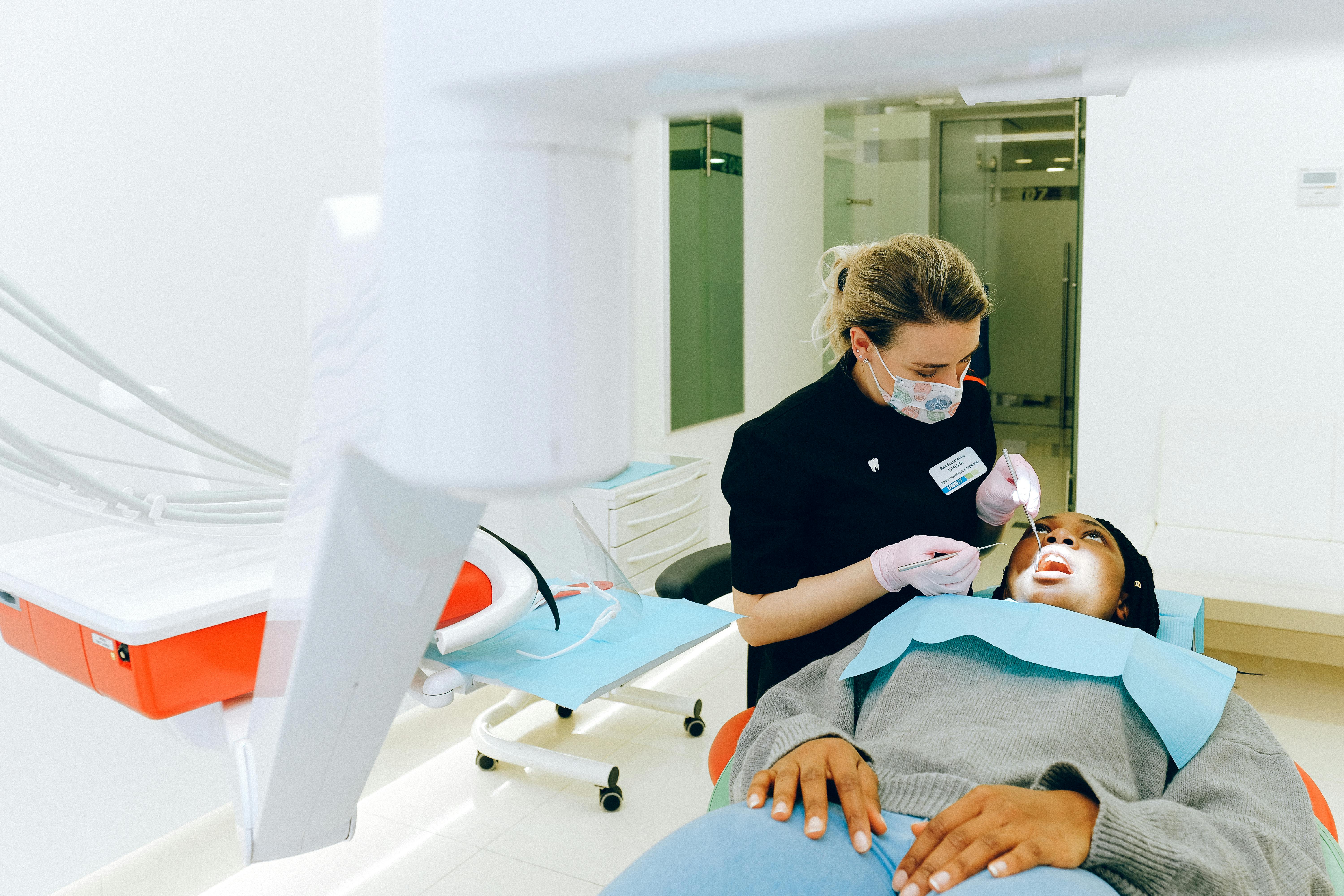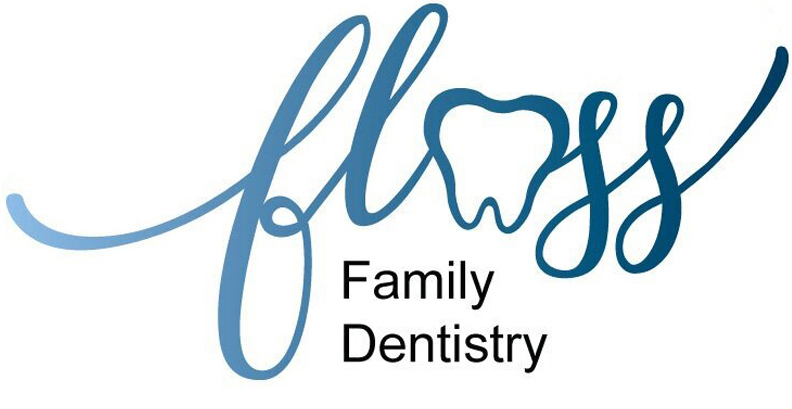A Complete Guide to Sedation Dentistry: Comfort and Care for Every Patient
Posted by Benjamin Hulse Jan 31, 2025

For many people, visiting the dentist can cause feelings of anxiety, fear, or discomfort. These emotions may prevent individuals from seeking dental care, potentially leading to oral health problems. Fortunately, sedation dentistry in Lehi, UT, offers a solution to make dental visits more comfortable and stress-free. Using various forms of sedation, a dentist can help patients relax during procedures, allowing them to receive the care they need without feeling overwhelmed.
This article explores sedation dentistry, the different types of sedation available, its benefits, and why you might consider it for your next dental visit.
What is Sedation Dentistry?
Sedation dentistry refers to using medication to help patients relax during dental procedures. It doesn’t necessarily put you to sleep but rather reduces anxiety and enhances comfort. Sedation techniques range from mild sedation, where you’re awake but relaxed, to deep sedation, where you’re less aware of your surroundings.
Sedation dentistry is ideal for individuals who experience dental anxiety, have sensitive teeth, need extensive dental work, or struggle to stay still during procedures. It allows patients to undergo necessary treatments without discomfort or fear. So, to get completely painless and anxiety-free dental procedures, contact us for the best sedation dentistry services.
Types of Sedation Used in Dentistry
There are several types of sedation used in dentistry, and a dentist in Lehi, UT, will choose the most appropriate method based on the complexity of the procedure and your personal needs. Here are the most common types:
- Nitrous Oxide (Laughing Gas): Nitrous oxide is the most commonly used form of sedation. It is a mild, inhaled sedative that helps patients feel relaxed and calm. The gas is administered through a mask placed over the nose, which works quickly, allowing you to feel its effects almost immediately. Nitrous oxide wears off quickly once the mask is removed, so you can resume normal activities after your appointment.
- This form of sedation is ideal for patients with mild anxiety or those undergoing minor procedures such as cleanings or fillings.
- Oral Sedation: Oral sedation involves taking a pill or liquid medication before the appointment to help you relax. The medication is typically taken an hour before the procedure, leaving you feeling calm and drowsy. Although you remain awake during the procedure, many patients feel so relaxed they might doze off. The effects of oral sedation can last for a few hours after the appointment, so you’ll need someone to drive you home afterward.
- Oral sedation is suitable for patients who experience moderate anxiety or who are undergoing more extensive dental work, such as root canals or extractions.
- IV Sedation: Intravenous (IV) sedation is delivered through a needle in your arm, allowing the medication to work quickly. IV sedation provides a deeper level of relaxation, and you may not remember the procedure. Your dentist can adjust the sedation level during the procedure to ensure comfort. Since IV sedation can have stronger effects, it’s typically used for more complex procedures like dental implants or multiple treatments performed in one visit.
- With IV sedation, you will need someone to accompany you to and from the appointment, as you may feel groggy for some time after the procedure.
- General Anesthesia: General anesthesia is the deepest form of sedation, where the patient is completely unconscious during the procedure. This type of sedation is usually reserved for major surgeries or patients with extreme anxiety or fear of dental procedures. An anesthesiologist administers general anesthesia, and its effects can last for several hours, so you will need to be closely monitored throughout the process.
Benefits of Sedation Dentistry
Sedation dentistry offers several advantages that can enhance both the patient experience and the outcome of the dental visit. Here are some of the key benefits:
- Reduced Anxiety: The primary benefit of sedation dentistry is its ability to alleviate anxiety. Whether you’re fearful of dental procedures, have had negative experiences in the past, or simply have a strong gag reflex, sedation helps make the experience much more tolerable.
- Improved Comfort: Some dental procedures can cause discomfort, even with a local anesthetic. Sedation ensures you remain relaxed and comfortable throughout the procedure, which can help you feel at ease, even during lengthy treatments.
- Faster Procedures: When relaxed and calm, your dentist can work more efficiently, and procedures may take less time. For patients undergoing multiple treatments, sedation dentistry allows the dentist to complete everything in one visit, reducing the need for additional appointments.
- Reduced Sensitivity: If you have sensitive teeth or gums, sedation can help reduce the discomfort associated with certain procedures. It also makes it easier for patients to sit still longer, which can be especially helpful for complex treatments.
- Memory Loss: Some forms of sedation, particularly IV sedation, can result in partial or full amnesia of the procedure. This is beneficial for patients who may have had traumatic experiences in the past and wish to avoid remembering the procedure altogether.
Who Should Consider Sedation Dentistry?
Sedation dentistry is suitable for many individuals, but it is especially beneficial for certain groups of people:
- Patients with Dental Anxiety or Phobia: If you experience significant fear or anxiety about visiting the dentist, sedation can help you relax and receive necessary treatment without stress.
- Patients Undergoing Extensive Dental Work: For those needing multiple procedures in one visit, sedation dentistry can make the process much more comfortable and less overwhelming.
- People with Sensitive Teeth or Gums: If you have heightened sensitivity, sedation can help you tolerate treatments more easily.
- Patients with Gag Reflexes: A strong gag reflex can make dental visits difficult. Sedation helps keep the reflex in check, allowing your dentist to work without interruption.
What to Expect During and After Sedation Dentistry
Before your appointment, your dentist will discuss your medical history, including any allergies, medications, and previous experiences with sedation. Depending on the type of sedation, you may be instructed to fast for several hours before the procedure to reduce the risk of complications.
You’ll be monitored closely during the procedure to ensure your safety and comfort. Afterward, you may feel drowsy or groggy, especially after receiving moderate or deep sedation. You should arrange for someone to drive you home and avoid operating heavy machinery or making important decisions for the rest of the day.
Conclusion
Sedation dentistry in Lehi, UT, is an excellent option for patients who experience anxiety, discomfort, or fear when visiting the dentist. By offering a range of sedation options, a dentist in Lehi, UT, can help you receive the care you need in a relaxed, stress-free environment. Whether you need a routine cleaning or more complex dental procedures, sedation dentistry can ensure a positive and comfortable dental experience, helping you confidently maintain your oral health.
Schedule an appointment with us today at Floss Family Dentistry, 2183 W Main St, Suite 301A, Lehi, UT 84043. For bookings and consultations, call (801) 610-7200. Please visit our official website to learn more about our various services.
Office Hours
MON - FRI9:00 am - 5:00 pm
SAT - SUNClosed








